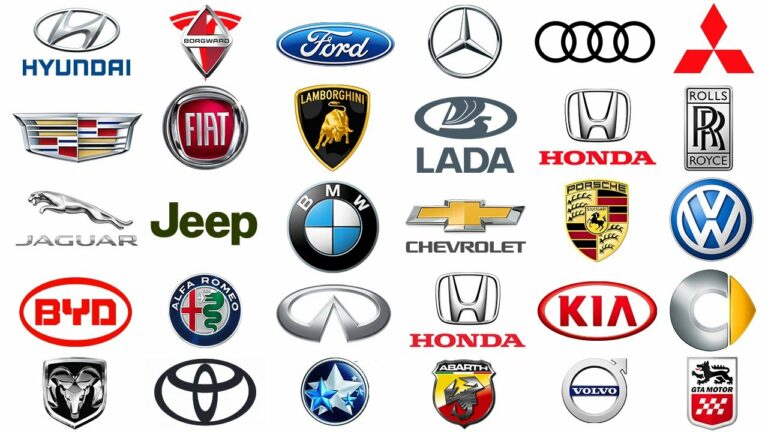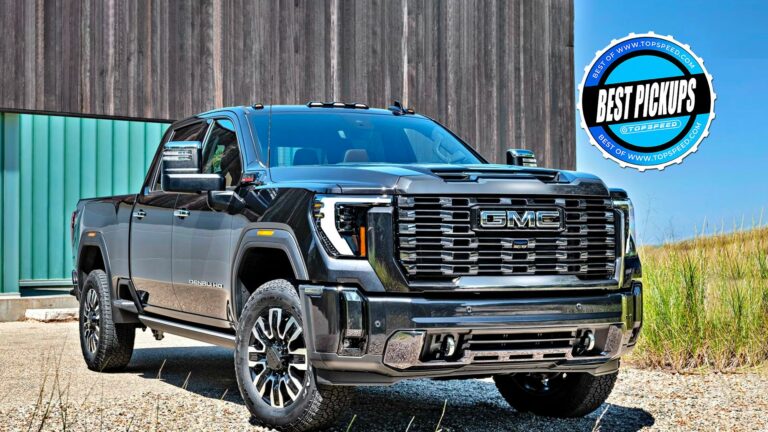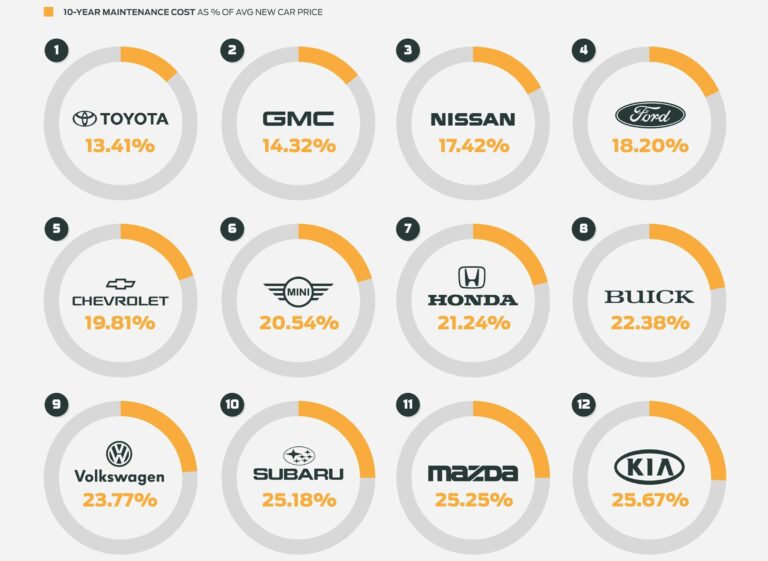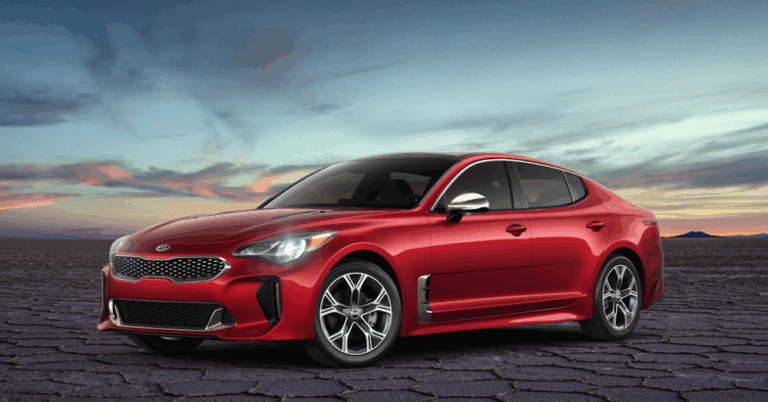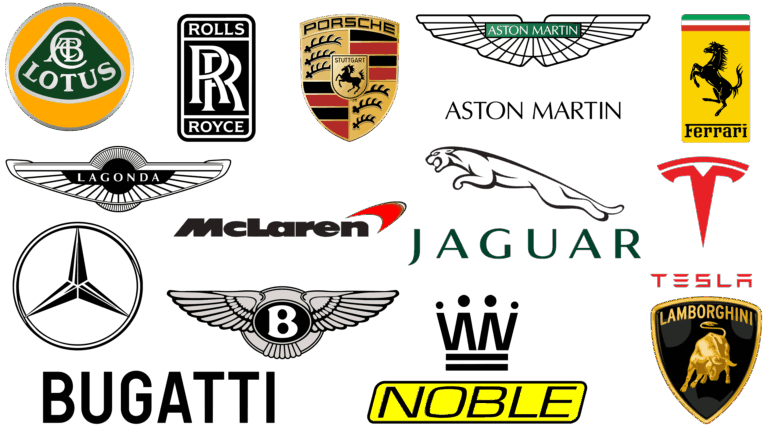What Is The Best Car Brand: Navigating the Ultimate Automotive Question
What Is The Best Car Brand: Navigating the Ultimate Automotive Question cars.truckstrend.com
The quest for "the best car brand" is a timeless pursuit, a question that sparks debates in garages, ignites online forums, and fuels countless car reviews. It’s a question without a single, definitive answer, yet its importance is undeniable. For most people, a car represents one of the largest purchases they will make, second only to a home. Choosing the right brand means aligning a significant investment with one’s lifestyle, values, and financial realities. It impacts daily commutes, family adventures, personal safety, and even environmental footprint.
This comprehensive guide aims to deconstruct the elusive concept of "best" in the automotive world. We will explore the myriad factors that contribute to a brand’s perceived excellence, identify top contenders across various categories, and, most importantly, equip you with the tools to determine what the "best car brand" truly means for you.
What Is The Best Car Brand: Navigating the Ultimate Automotive Question
The Elusive Definition of "Best": Why It’s Subjective
To proclaim one car brand as universally "the best" would be an oversimplification, if not an outright fallacy. The truth is, "best" is a deeply personal and context-dependent metric. What constitutes excellence for a daily commuter prioritizing fuel efficiency and reliability will differ drastically from what an automotive enthusiast seeks in terms of raw performance and driving dynamics, or what a luxury buyer values in terms of comfort and prestige.
Consider these scenarios:
- The Pragmatist: Needs a reliable, fuel-efficient vehicle for commuting and family errands, with low maintenance costs and strong resale value. For them, brands like Toyota or Honda might be "best."
- The Enthusiast: Prioritizes powerful engines, sharp handling, and an engaging driving experience. Brands like Porsche, BMW, or Mercedes-AMG might top their list.
- The Luxury Seeker: Values opulent interiors, advanced technology, unparalleled comfort, and a prestigious badge. Mercedes-Benz, Lexus, or Audi would likely be contenders.
- The Eco-Conscious: Focuses on sustainability, electric range, and minimal environmental impact. Tesla, Volvo, or specific EV models from other brands would be their preference.
- The Safety-First Buyer: Prioritizes robust crash protection and advanced driver-assistance systems. Volvo or Subaru might be considered "best."
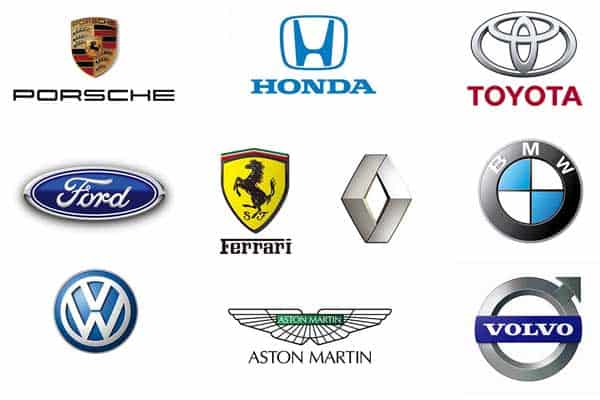
Each of these buyers has a valid, yet different, definition of "best." Understanding this subjectivity is the first step in your journey to finding the ideal car brand.
Key Criteria for Evaluating Car Brands
While "best" is subjective, the criteria used to evaluate car brands are universal. By assessing brands against these benchmarks, you can build a comprehensive picture of their strengths and weaknesses.

- Reliability & Durability: This is often at the top of many buyers’ lists. A reliable car is one that starts every time, requires minimal unscheduled repairs, and lasts for many years without major issues. Brands like Toyota and Lexus consistently rank high in independent reliability surveys (e.g., J.D. Power, Consumer Reports) due to their meticulous engineering, stringent quality control, and focus on proven technology.
- Performance & Driving Dynamics: This encompasses engine power, acceleration, handling, braking, and the overall feel of the car on the road. Brands like BMW, Porsche, and Mercedes-Benz are renowned for delivering engaging driving experiences, precise steering, and powerful engines. Even mainstream brands like Mazda have carved out a niche for offering excellent driving dynamics for their segment.
- Safety: Modern vehicles are marvels of safety engineering, incorporating passive features (e.g., crumple zones, airbags) and active technologies (e.g., automatic emergency braking, lane-keeping assist, blind-spot monitoring). Brands like Volvo have built their entire reputation on safety innovation, while others like Subaru and Mercedes-Benz also consistently earn top safety ratings from organizations like the IIHS (Insurance Institute for Highway Safety) and NHTSA (National Highway Traffic Safety Administration).
- Luxury & Comfort: This criterion pertains to the quality of interior materials, seat comfort, ride smoothness, noise insulation, and the availability of premium features like heated/ventilated seats, multi-zone climate control, and advanced sound systems. Mercedes-Benz, BMW, Audi, and Lexus are the quintessential luxury brands, known for their opulent cabins and refined driving experiences.
- Technology & Innovation: From advanced infotainment systems and seamless smartphone integration to cutting-edge driver-assistance features and revolutionary electric vehicle (EV) platforms, technology is a rapidly evolving area. Tesla is a clear leader in EV technology and software integration, while brands like Mercedes-Benz and Hyundai/Kia are also pushing boundaries with their digital cockpits and EV offerings.
- Value for Money: This isn’t just about the initial purchase price, but also includes factors like fuel efficiency, insurance costs, maintenance expenses, and crucially, resale value. Brands that offer a strong balance of features, quality, and low total cost of ownership are considered good value. Honda, Toyota, Hyundai, and Kia often excel in this area.
- Environmental Impact & Sustainability: With growing awareness of climate change, many buyers consider a brand’s commitment to sustainability. This includes fuel efficiency, the availability and range of electric and hybrid vehicles, and even the eco-friendly practices in the manufacturing process. Tesla, Toyota (with its long history of hybrids), and Volvo (with its ambitious electrification goals) are prominent in this space.
- Design & Aesthetics: While highly subjective, a brand’s design language plays a significant role in its appeal. Some prefer the aggressive lines of a BMW, the elegant simplicity of a Volvo, or the futuristic minimalism of a Tesla. Interior ergonomics and aesthetic appeal also fall under this category.
- Customer Service & Ownership Experience: Beyond the vehicle itself, the experience with the dealership, the warranty coverage, and the availability of parts and service can significantly impact satisfaction. Brands like Lexus are consistently lauded for their exceptional customer service.
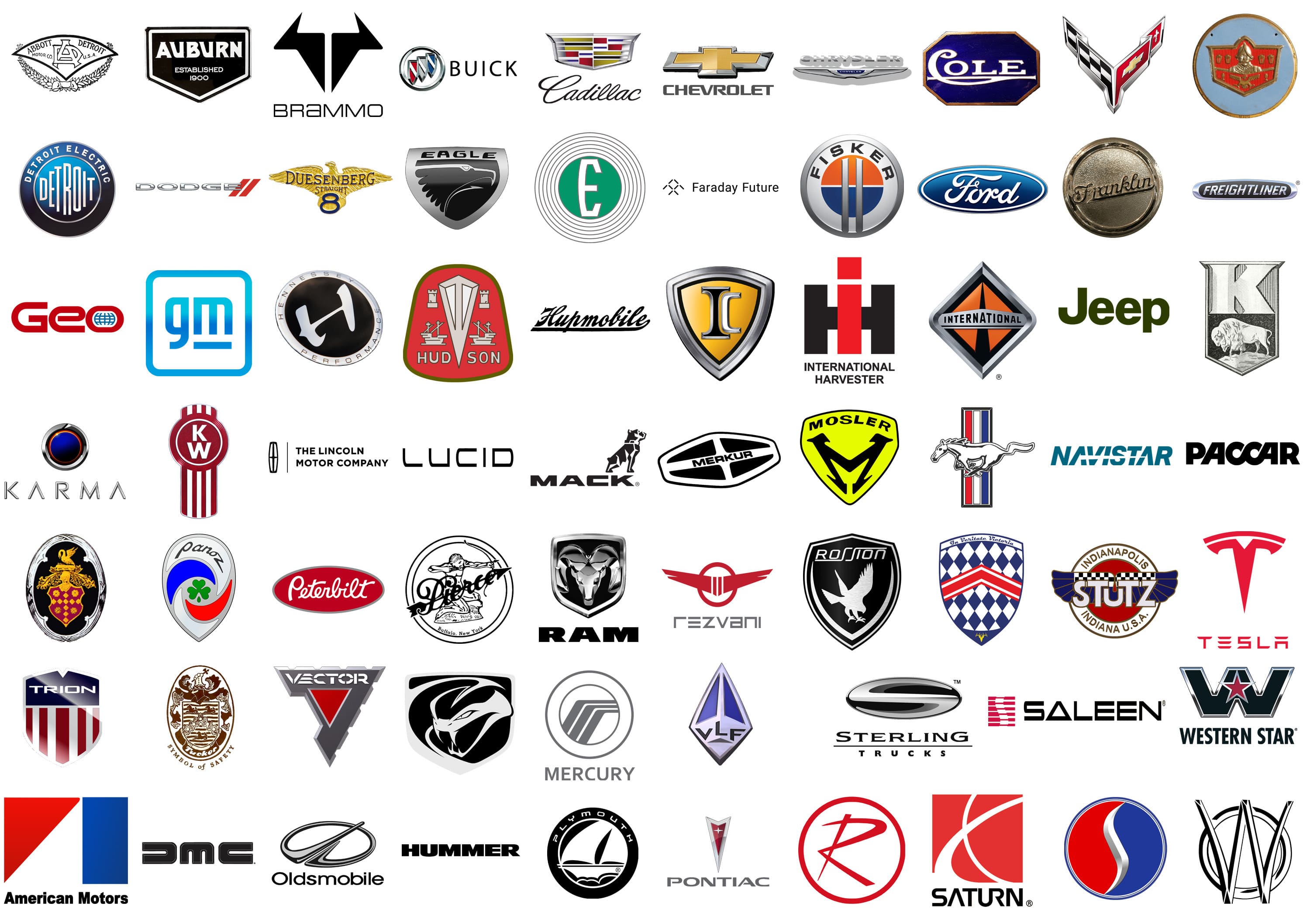
Top Contenders Across Diverse Categories
While no single brand wins all categories, here’s a look at brands that consistently lead in specific areas:
-
Overall Reliability Champions:
- Toyota & Lexus: Consistently top the charts for long-term durability and low incidence of problems. Their vehicles are known for holding their value exceptionally well.
- Honda: A close second to Toyota, offering robust engineering, efficient engines, and strong resale.
- Mazda & Subaru: Have made significant strides in recent years, offering excellent reliability combined with engaging driving dynamics.
-
Luxury & Prestige Leaders:
- Mercedes-Benz, BMW, Audi: The German "Big Three" define automotive luxury, offering a blend of performance, advanced technology, and exquisite interiors.
- Lexus: Toyota’s luxury arm provides unparalleled reliability and customer service, combined with plush comfort and quiet rides.
- Porsche: While also a performance leader, Porsche’s luxury SUVs and sedans offer a refined experience with a sporty edge.
-
Performance & Driving Dynamics Kings:
- Porsche: Arguably the benchmark for sports car performance, offering precise engineering and thrilling drives across its lineup.
- BMW (M Division) & Mercedes-AMG: Their performance divisions transform already capable cars into high-octane machines.
- Ferrari & Lamborghini: The ultimate in exotic performance, delivering unparalleled speed and exclusivity.
-
Safety Innovators:
- Volvo: A pioneer in automotive safety, consistently introducing groundbreaking safety features and earning top crash test ratings.
- Subaru: Known for its standard all-wheel drive and strong commitment to safety, often earning top marks from safety organizations.
- Mercedes-Benz: Integrates a wide array of advanced safety technologies, including sophisticated ADAS.
-
Electric Vehicle & Technology Pacesetters:
- Tesla: Revolutionized the EV market with long-range batteries, powerful motors, and industry-leading software/infotainment.
- Hyundai & Kia: Have rapidly emerged as strong contenders in the EV space, offering compelling range, fast charging, and innovative designs.
- Mercedes-EQ & Audi e-tron: The luxury brands are quickly expanding their EV portfolios, bringing their signature luxury and performance to the electric realm.
-
Value for Money & Practicality:
- Honda & Toyota: Offer a fantastic blend of reliability, fuel efficiency, practical design, and excellent resale value.
- Hyundai & Kia: Have dramatically improved in quality and design, offering feature-rich vehicles at competitive prices with excellent warranties.
- Mazda: Provides a more premium feel and better driving dynamics than many competitors in its price range, with solid reliability.
How to Identify YOUR Best Car Brand: A Practical Guide
Given the subjectivity, the ultimate goal is to find the "best car brand" for your specific circumstances. Here’s a step-by-step approach:
-
Self-Assessment: Define Your Priorities:
- Budget: What’s your absolute maximum for purchase price, insurance, fuel, and maintenance?
- Needs: Daily commute, family hauler, off-roading, luxury cruising, performance driving, eco-friendly transport?
- Driving Habits: Long highway trips, city driving, spirited backroad driving?
- Must-Haves: Specific safety features, advanced tech, cargo space, AWD, high fuel economy?
- Wants vs. Needs: Differentiate between essential features and desirable luxuries.
-
Thorough Research is Key:
- Reliability & Durability: Consult independent consumer reports (e.g., J.D. Power, Consumer Reports, RepairPal) for long-term reliability data and common issues.
- Safety Ratings: Check NHTSA (National Highway Traffic Safety Administration) and IIHS (Insurance Institute for Highway Safety) for crash test results and safety feature evaluations.
- Owner Reviews: Read what current owners have to say about their experiences – both positive and negative.
- Professional Reviews: Watch and read reviews from reputable automotive journalists who provide unbiased insights into driving dynamics, comfort, and features.
- Total Cost of Ownership: Research projected resale value, insurance costs, typical maintenance schedules, and fuel efficiency for specific models.
-
Test Drive, Test Drive, Test Drive:
- No amount of research can replace the actual experience. Drive multiple models from different brands that fit your criteria.
- Pay attention to: seat comfort, visibility, ease of controls, ride quality, noise levels, acceleration, braking, and how it handles in your typical driving conditions.
- Test the infotainment system and crucial features.
-
Consider the Ownership Experience:
- Dealer Network & Service: Is there a reputable dealership close to you? What’s their reputation for customer service and maintenance?
- Warranty: What kind of warranty coverage does the brand offer (basic, powertrain, roadside assistance)?
- Parts Availability & Cost: Are parts readily available and reasonably priced for repairs?
-
Think Long-Term:
- How long do you plan to keep the car? High resale value becomes more important for shorter ownership periods.
- Will your needs change in the next 3-5 years (e.g., new family members, change in commute)?
Challenges and Nuances in Brand Evaluation
Even with a systematic approach, certain complexities can arise:
- Brand Perception vs. Reality: Marketing campaigns often create a perception that may not fully align with the actual product or ownership experience. Independent reviews and owner feedback are crucial here.
- Model Variation within a Brand: A brand might be renowned for its SUVs, but its sedans might not be as competitive, or vice-versa. Always evaluate specific models, not just the brand umbrella.
- The Evolving Automotive Landscape: The rapid shift towards electric vehicles, autonomous driving technology, and subscription services means that what’s "best" today might be challenged by new innovations tomorrow. Brands that adapt quickly will gain an edge.
- Global Differences: Consumer preferences, regulations, and market conditions vary significantly by region. A brand that is "best" in North America might not hold the same standing in Europe or Asia.
Comparative Overview of Top Car Brands
While a definitive "price table" for a whole brand is not feasible (as prices vary wildly by model, trim, and options), this table provides a comparative overview of some leading brands across key criteria, including typical starting price ranges for their popular models, to give you a sense of their market position and offerings.
| Brand Name | Primary Strength(s) | Typical Price Range (USD) (Starting MSRP) | Key Models/Series | Target Audience | Notes |
|---|---|---|---|---|---|
| Toyota | Reliability, Value, Hybrid Technology, Resale Value | $22,000 – $60,000+ | Camry, RAV4, Corolla, Highlander, Tacoma | Practical, Budget-Conscious, Long-term Owners | Known for bulletproof engines, low running costs, and strong resale. |
| Lexus | Luxury, Reliability, Comfort, Refinement, Customer Service | $40,000 – $100,000+ | RX, ES, GX, LS | Luxury Seekers, Comfort-Oriented, Quality Focused | Toyota’s luxury division, renowned for build quality and service. |
| BMW | Performance, Driving Dynamics, Luxury, Technology | $40,000 – $150,000+ | 3 Series, 5 Series, X5, X3 | Enthusiasts, Luxury Buyers, Performance-Oriented | "Ultimate Driving Machine," known for sporty feel and precision. |
| Mercedes-Benz | Luxury, Prestige, Safety, Technology, Comfort | $40,000 – $200,000+ | C-Class, E-Class, GLC, S-Class | Affluent, Status-Conscious, Comfort & Tech Seekers | Iconic luxury brand, pioneering safety and comfort features. |
| Honda | Reliability, Value, Practicality, Fuel Efficiency | $22,000 – $50,000+ | Civic, CR-V, Accord, Pilot | Practical, Family-Oriented, Commuters, Value Seekers | Strong engines, good resale, and user-friendly designs. |
| Tesla | Electric Vehicle Innovation, Performance, Technology, Software | $40,000 – $120,000+ | Model 3, Model Y, Model S, Model X | Tech-Savvy, Early Adopters, Eco-Conscious, Performance Seekers | Leader in EV market, strong software integration & charging network. |
| Volvo | Safety, Scandinavian Design, Comfort, Sustainability | $40,000 – $80,000+ | XC60, XC90, S60, S90 | Safety-Conscious, Design-Oriented, Family-Focused | Pioneering safety features, minimalist luxury, strong sustainability. |
| Audi | Luxury, Technology, Quattro AWD, Design | $38,000 – $120,000+ | A4, Q5, A6, Q7 | Tech-Savvy, Design-Conscious, Luxury Seekers, AWD Enthusiasts | Known for sophisticated interiors, advanced tech, and quattro AWD. |
| Hyundai/Kia | Value, Warranty, Design, Rapid EV Adoption | $20,000 – $70,000+ | Elantra, Sonata, Santa Fe, Sportage, Ioniq 5, EV6 | Budget-Conscious, Value-Seekers, Design-Conscious | Excellent warranty, rapidly improving quality, strong EV lineup. |
| Subaru | Safety, AWD, Reliability, Outdoor Lifestyle | $25,000 – $45,000+ | Outback, Forester, Crosstrek, Impreza | Safety-Conscious, Outdoor Enthusiasts, All-Weather Drivers | Standard AWD on most models, high safety ratings. |
Note: The "Typical Price Range" represents a general starting MSRP for popular models within the brand’s lineup and can vary significantly based on specific model, trim level, optional features, and market conditions.
Frequently Asked Questions (FAQ) about The Best Car Brand
Q1: Is there a universally "best" car brand?
A1: No, there isn’t a single universally "best" car brand. The "best" brand depends entirely on an individual’s specific needs, budget, priorities (e.g., reliability, performance, luxury, safety), and lifestyle.
Q2: Which car brands are considered the most reliable?
A2: Brands consistently ranking highest in reliability surveys (like J.D. Power and Consumer Reports) include Toyota, Lexus, Honda, and Mazda. These brands are known for their strong engineering and low incidence of mechanical issues.
Q3: What’s the safest car brand on the market?
A3: Volvo has long been synonymous with safety and often leads in safety innovation. Other brands like Subaru and Mercedes-Benz also consistently receive top safety ratings from organizations like the IIHS and NHTSA due to their robust construction and advanced driver-assistance systems.
Q4: Which car brands offer the best value for money?
A4: For overall value, considering purchase price, features, fuel efficiency, maintenance costs, and resale value, brands like Honda, Toyota, Hyundai, Kia, and Mazda are often cited as offering excellent value.
Q5: Are luxury car brands worth the extra cost?
A5: Whether luxury brands are "worth it" depends on your priorities. They offer superior comfort, advanced technology, higher performance, and often greater prestige. If these aspects are important to you and fit your budget, they can be a worthwhile investment. If pure utility and low running costs are paramount, a mainstream brand might be more suitable.
Q6: How can I effectively research car brands to find my best fit?
A6: Start by defining your needs and budget. Then, research reliability and safety ratings from independent organizations (J.D. Power, Consumer Reports, IIHS, NHTSA). Read professional reviews and owner testimonials. Finally, and crucially, test drive several models from different brands that meet your criteria to experience them firsthand.
Q7: What about electric car brands? Who leads the EV market?
A7: Tesla is currently the dominant player in the electric vehicle market, known for its long-range batteries, performance, and advanced software. However, traditional brands like Hyundai, Kia, Ford, General Motors, Mercedes-Benz, and BMW are rapidly expanding their EV offerings with compelling models that compete strongly in terms of range, charging speed, and features.
Q8: Does a brand’s reputation always reflect its current quality?
A8: Not always. While brand reputation is built over time, the automotive industry evolves rapidly. Some brands might rest on past laurels, while others (like Hyundai and Kia) have significantly improved their quality and offerings in recent years, often exceeding older perceptions. Always look at current models and recent reliability data.
Conclusion
The question "What Is The Best Car Brand?" is not a simple one, and its answer lies not in a universal truth, but in individual priorities. There is no single champion that dominates every category for every driver. Instead, the automotive landscape is a rich tapestry of brands, each with its unique strengths, philosophies, and target audiences.
The "best" car brand is ultimately the one that most perfectly aligns with your specific needs, budget, values, and driving preferences. By understanding the key criteria for evaluation – from reliability and safety to luxury and environmental impact – and by engaging in thorough research and personal test drives, you empower yourself to make an informed decision. The journey to finding your ideal vehicle is a personal one, and the most rewarding outcome is driving a car that truly feels like it was made for you.

